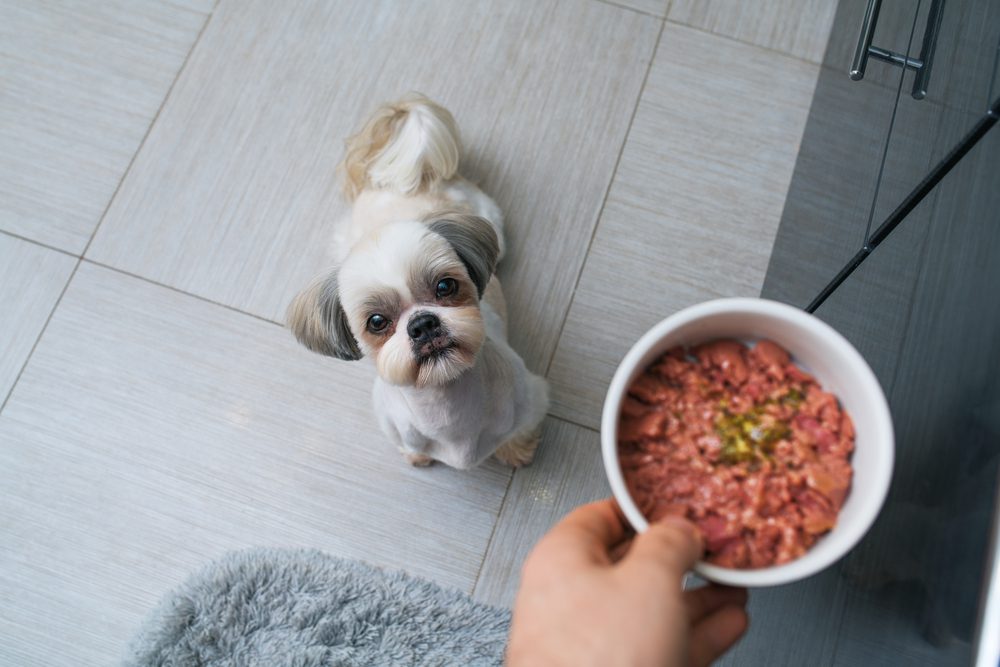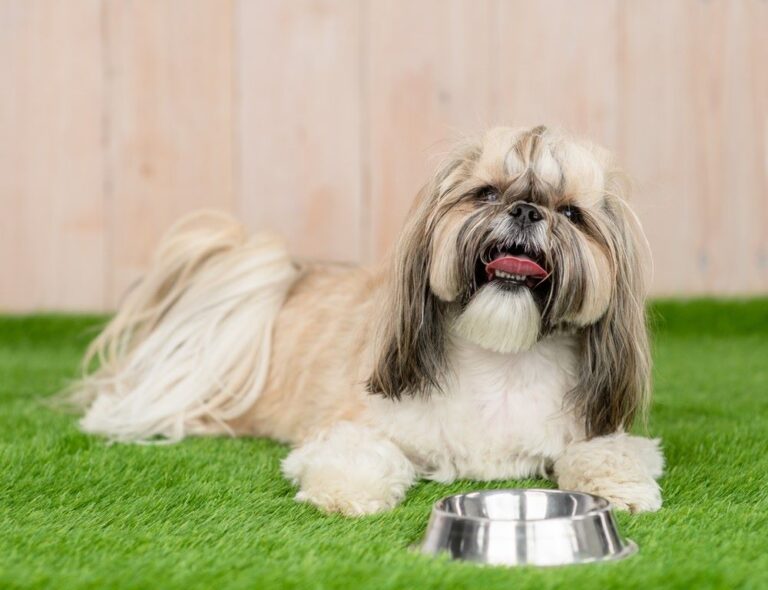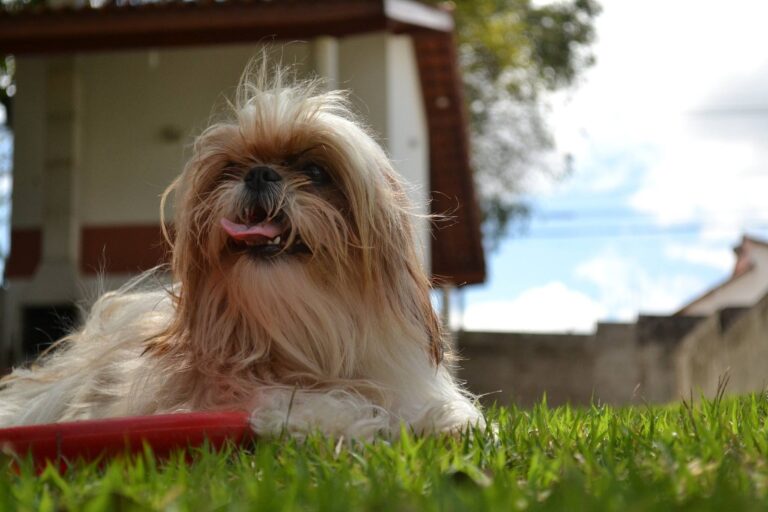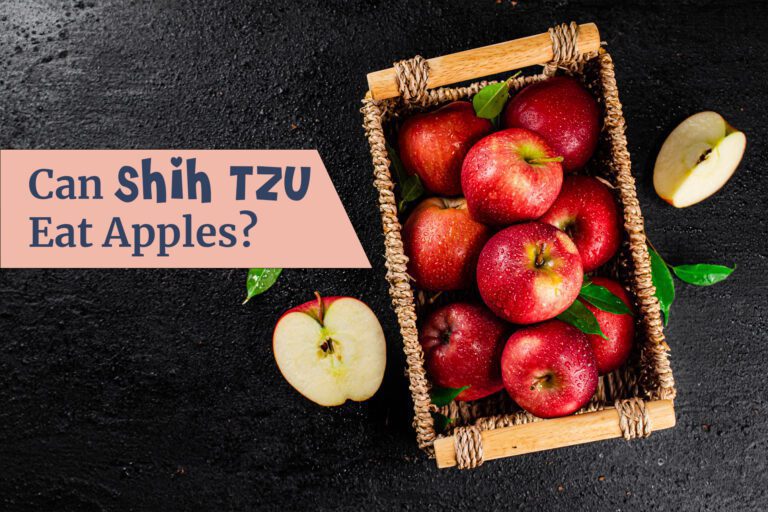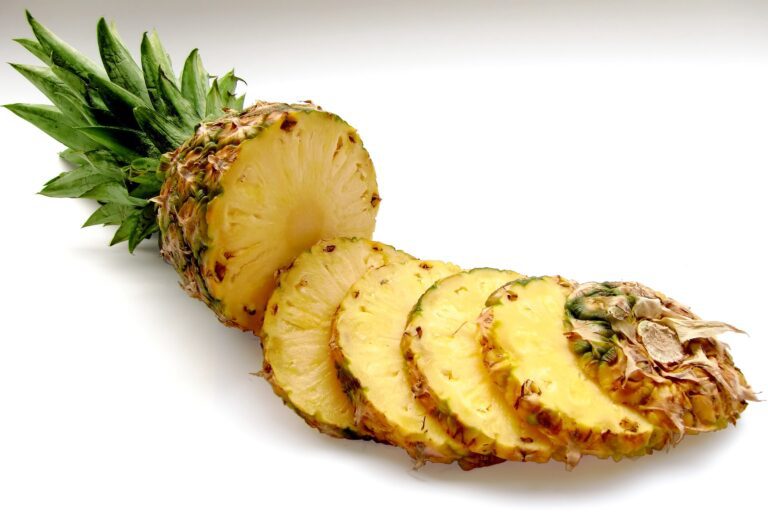Unpacking the Controversy: Should Shih Tzus Eat Raw Meat?
Should Shih Tzus Eat Raw Meat? From royal companions in ancient Chinese courts to beloved household pets worldwide, Shih Tzus has snuggled into our hearts. But as their pet parents, unraveling the truth behind their dietary needs can become a battleground riddled with confusion. Enter the heated debate: Should Shih Tzus eat raw meat?
Against a larger controversy surrounding the ‘raw vs. kibble’ discourse, this question warrants careful consideration. Unpack the problem fueled by differing viewpoints, clashing studies, and passionate canine nutritionists, all advocating for what they believe is best for the fluffy Shih Tzu. While some argue fervently for the primal nutrients in raw diets, others warn of potential dangers.
As you navigate this emotionally and scientifically charged terrain, arm yourself with the necessary knowledge and discover what truly benefits your Shih Tzu’s well-being. Can raw meat deliver the royally fit diet your fuzzy companion deserves? Let’s find out!
The raw meat diet: What is it?
The raw meat diet for dogs, also known as Biologically Appropriate Raw Food (BARF), is a feeding practice that mimics the natural eating habits of wild canines. The diet typically includes uncooked meat, bones, fruits, vegetables, and dairy products. The idea behind this diet is that dogs are carnivores and should eat a diet rich in flesh and bones, as their ancestors did in the wild.
Proponents of the raw meat diet believe it provides dogs with a more natural and holistic way of eating. They argue that dogs, like their wolf ancestors, are designed to eat and digest raw meat and bones. This diet is said to provide dogs with all the nutrients they need without the need for processed foods or supplements.
However, the raw meat diet isn’t without controversy. Many vets and animal nutritionists have raised concerns about this diet’s safety and nutritional adequacy. They argue that while dogs are descendants of wolves, they have evolved and adapted to a more varied diet, including cooked and processed foods.
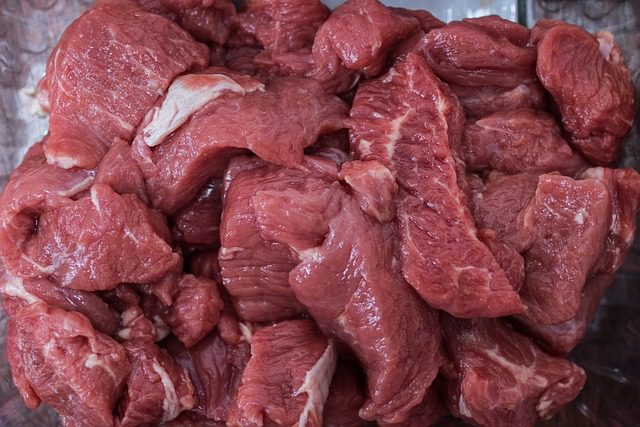
Pros of feeding Shih Tzus raw meat
Feeding your Shih Tzu a raw meat diet can have several benefits. Firstly, a raw diet is often high in protein, essential for your dog’s health. Protein provides the building blocks for tissues, muscles, and organs and is crucial for growth and repair. A diet rich in high-quality protein can help your Shih Tzu maintain a healthy weight and lean muscle mass.
Secondly, raw diets are typically free from artificial additives, preservatives, and fillers. These can sometimes cause allergies or digestive issues in Shih Tzus. A raw diet can lead to fewer health issues related to food sensitivities.
Thirdly, many pet parents who feed their Shih Tzus a raw diet report improvements in their dogs’ coat condition, energy levels, and overall health. They also often notice less offensive stool odor and smaller, firmer stools – a potential indicator of improved digestion.
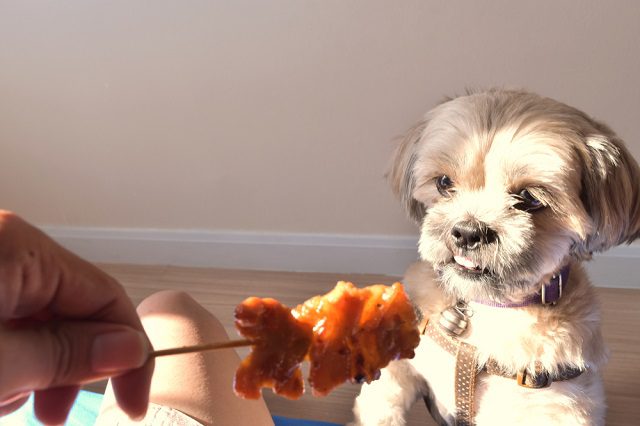
Cons of feeding Shih Tzus raw meat
Despite the purported benefits, feeding your Shih Tzu a raw meat diet also carries risks. One primary issue revolves around the risk of bacterial contamination. Uncooked meat can potentially have dangerous bacteria like Salmonella and E. coli, posing a significant threat of severe illness to dogs and humans. This risk is limited to dogs and human family members, particularly those with weakened immune systems.
Another concern is nutritional imbalance. While a raw diet can be high in protein, it may only provide some nutrients your Shih Tzu needs. Dogs require a balanced diet with the right proportions of protein, carbohydrates, fats, vitamins, and minerals. A raw diet can lead to nutritional deficiencies or excesses without careful planning and supplementation.
Finally, feeding a raw diet can take time and effort. Preparing a balanced, natural diet requires time, knowledge, and action. It also often involves buying high-quality meat, which can be more expensive than commercial dog food.
How to transition your Shih Tzu to a new diet
If you decide to change your Shih Tzu’s diet, it’s essential to do so gradually to avoid digestive upset. Commence by blending a small quantity of the new food with the existing one, progressively augmenting the ratio of the fresh food over a week or two.
Monitor your dog closely during this transition period. Look for any signs of digestive upset, such as vomiting, diarrhea, or loss of appetite. If you notice any of these signs, it’s best to consult with your vet.
Remember that each dog is unique, and what proves effective for one may not be suitable for another. Finding the best diet for your Shih Tzu may take trial and error. Most importantly, whatever diet you choose, ensure it provides your furry friend with the nutrition they need for a healthy and happy life.
Should Shih Tzus eat raw meat?
The question of whether Shih Tzus should eat raw meat is a contentious one. Proponents of the raw diet argue that it’s a natural and healthy way of feeding dogs, while critics highlight the potential risks.
One of the main points of contention is the risk of bacterial contamination. While advocates of the raw diet argue that dogs can handle bacteria in raw meat, critics point out this isn’t always the case. Some young, old, or immunocompromised dogs may be more susceptible to bacterial infections.
Another point of disagreement is the issue of nutritional balance. While raw diet enthusiasts believe this diet can provide all the necessary nutrients for dogs, many vets and nutritionists argue that this is only achievable with careful planning and supplementation.
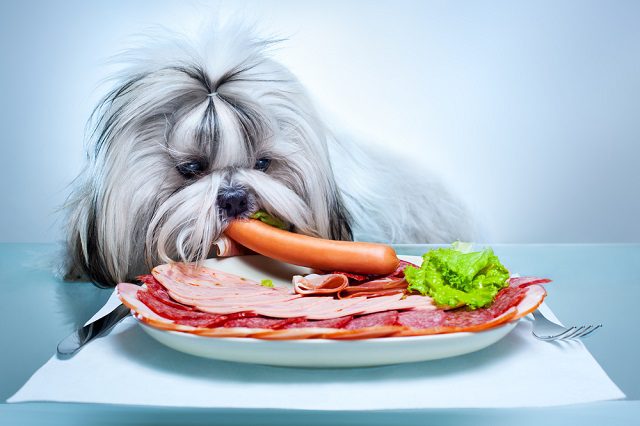
Expert opinions on feeding Shih Tzus raw meat
Expert opinions on feeding Shih Tzus raw meat are divided. While some vets and animal nutritionists support the raw diet, many others caution against it.
For instance, the American Veterinary Medical Association discourages feeding dogs raw or undercooked animal-source protein due to the risk of illness to pets and humans. Similarly, the British Small Animal Veterinary Association states that raw meat-based diets can lead to serious health problems, including nutritional imbalances and bacterial infections.
However, some experts, like Dr. Ian Billinghurst, the creator of the BARF diet, believe that raw diets can provide dogs with the best possible nutrition. They argue that many health problems in dogs are linked to processed foods and that returning to a more natural diet can improve dogs’ health.
Alternatives to a raw meat diet for Shih Tzus
Other options are available if you’re uncomfortable feeding your Shih Tzu raw meat or your vet advises against it. Commercially prepared dry and wet dog foods provide a balanced diet and are usually formulated to meet the nutritional needs of specific breeds, life stages, and health conditions.
Another alternative is home-cooked meals. This allows you to control the quality and variety of ingredients but requires careful planning to ensure nutritional balance. Some pet parents opt for a combination of commercial food and home-cooked meals.
Finally, there are commercially prepared raw diets. These are usually frozen or freeze-dried and have been processed to kill harmful bacteria. While they offer the benefits of a raw diet, they also carry a higher price tag.
Consulting with a vet
Before making any changes to your Shih Tzu’s diet, it’s essential to consult with a vet or a qualified pet nutritionist. They can provide guidance based on your pet’s age, weight, health status, and specific needs.
When making dietary decisions, it’s essential to consider your pet’s needs and preferences, as well as your lifestyle and budget. What is effective for one Shih Tzu might not yield the same results for another. Monitoring your pet’s health and making necessary adjustments is crucial.
Remember, a healthy diet is just one aspect of your Shih Tzu’s overall well-being. Regular exercise, preventative healthcare, and love and attention are vital to keeping your furry friend happy and healthy.
Conclusion
The question of whether Shih Tzus should eat raw meat is a complex one. While a raw meat diet can offer certain benefits, it also carries potential risks. It’s a decision that should be made in consultation with a vet or a qualified pet nutritionist, considering your pet’s needs and circumstances.
Regardless of the diet you choose for your Shih Tzu, the most important thing is to ensure that it is balanced, nutritionally adequate, and safe. Remember, the goal is not to feed your pet a diet but to provide them with the best nutrition for a long, healthy, and happy life.

